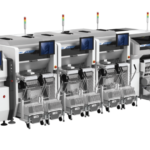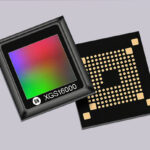ASIA ELECTRONICS INDUSTRYYOUR WINDOW TO SMART MANUFACTURING
Titan Unveils New Line of LMR Motor for High Definition Haptic Solution
Haptic solution is a sort of tactile feedback technology that makes you virtually feel as if you touch real objects like lion’s mane or vases by applying forces, vibrations and actions to your hands
Since it made a debut, the technology has been widely used in a series of smart phones to work as a virtual keyboard system or a start button to give users virtual feelings that they type in real letters or get into action to start their phones.
As the haptic technology is now rapidly evolving, it is expanding its reach beyond smart phones into wearable devices, game consoles, and even cars, promising to revolutionize UI, or UX – the way that people interact with machines.
Leading the trend is Titan Haptics, a spin-off of Nanoport Technology Inc, which is a developer of advanced haptics motors for smartphones, consoles, touchscreen devices.
The company has recently launched a next generation of micro motors that come bundled together with Immersion’s tactile feedback sensing IP algorithm.
The micro-motor is built with its proprietary linear magnetic ram, or LMR technology, coming in a small form factor. The LMR technology helps to improve the dynamic range by an factor of 20 times, compared with conventional LMR-less haptic motors, while doubling its reliability at a competitive price point.
The wider the dynamic range is, the higher its definition gets, enabling users to feel more sensitively than otherwise.
“Like HD for audio and video, it’s time for touch technology to get an HD upgrade,” says Tim Szeto, founder of Titan Haptics. LMR motors enable elevated experiences in gaming, music, augmented reality, and virtual buttons on smartphones and other exciting upcoming applications,” he added.
Haptic solution is made up of MCUs, micro motors, and haptic effect IP algorithm. Immersion is the world’s largest haptic tactile feedback IP company that has licensed and implemented its IPs in more than 3 billion devices.




